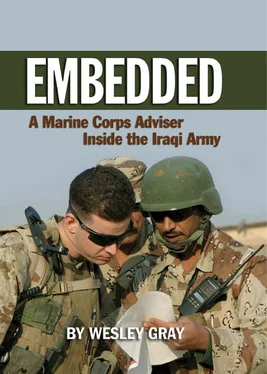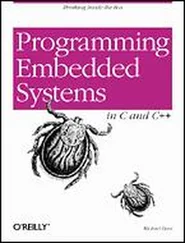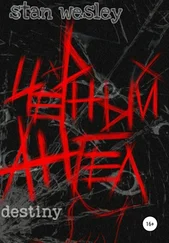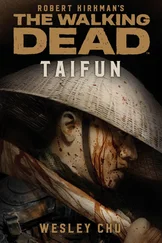I continued walking to the different positions, bounding from one place of cover to another, doing what I had been taught in all my training. I looked at every weird spot on the ground and rushed past danger areas. On the other hand my comrade, Captain Chin, strolled along calmly. “Sir,” I asked him, “aren’t you worried about the snipers from across the Euphrates shooting at you?” Chin casually said, “Gray, don’t follow my example and make your own decisions, but heed my advice. At the pace you’re going you’ll last a few hours out here. You’re wearing eighty pounds of shit and it’s 130 degrees outside. I know it seems counterintuitive to be complacent at times, but it would be a shame if I had to write your wife a letter because you died of heatstroke.” I thought Captain Chin was speaking the truth. I’d die if I kept this up. I had a much higher chance of kicking the bucket from heatstroke than from an insurgent sniper on the other side of the river with a broken AK-47, no aim, and a reliance on Allah to put the bullet in my head.
For the rest of the day I operated with less tension, but only to a level where I still felt comfortable—I was not taking any stupid risks. I was not a salty combat vet yet. I wanted to ease my way into this. After a few rounds of checking out Iraqi blocking positions and realizing they were up to Iraqi standard, I decided it was time to go chill with the Iraqi medics.
The medics were the smartest Iraqis with us. They had established a foothold on a great shade spot under a former bank building that had been crushed by a 500-pound bomb a few years earlier by coalition forces. The building was in total shambles, but the warped roof structure provided amazing shade (see photo 5). I figured I could kill two birds with one stone: I could learn a little Arabic and I could cool off a bit.
“As salama aleikum” (Peace be upon you), I muttered to the two Iraqi medics. “Wa aleikum salam” (And upon you peace), they eagerly replied, smiling from ear to ear. After a five-minute exchange of pleasantries in Arabic, the two Iraqis showed me to a piece of choice rubble that made an excellent seat. I was not at a Starbucks, but the discussion I was having was fascinating. Luckily, one of the medics, Hussein, was a former English teacher in Baghdad. With my developing Arabic skills and his rudimentary ability to say some English words, we pieced together a great conversation.
Hussein was a private in the Iraqi army. He had a well-groomed mustache, embracing smile, and soft features—a sure sign his life had not been rough. He was thirty-eight and looked his age, which is saying something for an Iraqi. I have met a few Iraqi soldiers in their thirties and forties and all look as though they were only a few steps away from a six-foot hole in the ground. Hussein was different. He was a modern man, well educated, and had led a simple middle-class life. He had a wife and two young boys of whom he was very proud. I could not figure why this guy was a jundi .
Things changed for Hussein when OIF (Operation Iraqi Freedom) commenced in 2003. After the initial invasion and chaotic aftermath, he was left with limited options. He could move to southern Iraq and make $50 a month continuing his craft as a teacher—a fifteen-year career—but he would not have enough income to support his family. Hussein’s second choice was to join the new Iraqi army. In the IA he would start off making about $350 a month and would be able to give his family a much better life. The choice was easy. Providing for one’s family is the foundation of an Iraqi man’s pride and honor. Nothing takes precedence over this sacred duty, even if it means leaving for the chaos of Al Anbar Province, risking one’s life on a daily basis, and returning home to face constant death threats.
My conversations with Hussein and Muhammad, the other Iraqi medic, eventually led to the topic of conversation that is universal to all military males regardless of culture or creed: beautiful women. Hussein and Muhammad were interested in hearing about women from California. They wanted to know what made them special. A litany of questions came flying at me: “Why are all of the beautiful women in California? What is the magic that moves them to this area?” Clearly these men had watched too many old episodes of Baywatch . I debated whether I should make up an interesting story as to why all the hot women resided in California. I decided to be honest and explained to them that this was a stereotype from television and that beautiful women live throughout America.
Trying to temper their fantasy, I told Hussein and Muhammad that many Mexican women were moving into the area. I found it hard to translate “Mexican” into Arabic, but it did not matter. Hussein and Muhammad blurted out in almost perfect unison, “Mexicii? Me love Mexicii ma’am!” (Mexican? Me love Mexican women!) Apparently Mexican women hit a hot spot with these Iraqi men. It turns out Mexican women look very similar to Lebanese woman and are thus more in line with the ideal of Arab beauty. I was still confused. I could not think of a classic American television show that would have exposed Iraqi men to Mexican women. I asked my friends where they had seen Mexican women. “Television,” they responded in English. “On the Mexican television.” A light flashed in my head. How many times had I spun through the channels in the United States and stopped on Telemundo to look at the gorgeous and scantily clad Mexican women dancing around on some game show. The Iraqis had done the same thing.
After conversing with the medics I made my way to Gunnery Sergeant Horvath’s and Captain Chin’s position in an abandoned school. I took a seat in the corner of a room where they were resting.
Boom! I felt the earth shake beneath me. My heart sank. “Oh shit, Gunny. What the fuck was that?” Unfazed, Horvath responded, “Not sure, Sir, by the sound I’d guess an IED across the river in Barwana.” My heart was racing. The combat vets continued to snooze and talk about the peculiarities of the jundi while I wondered when I was going to die.
In the midst of our conversation the sound of Arabic came over one of the Motorola radios. We went to check it out. Civilians were gathering near our position, requesting entrance into the town. At first there were only two civilians, moaning that they needed to get to their homes. The crowd swelled to thirty and we had the Iraqi squad leader dispatch a jundi to calm the scene.
In our training we were taught to approach Iraqi civilians in a peaceful manner and only elevate the level of force according to the situation. If the civilians are peaceful, we were told, approach them peacefully; if the civilians are firing guns at you, approach them with your machine gun on full automatic. The Iraqis had a different perspective. The dispatched jundi moved forward with his RPK machine gun pointing directly at the crowd. He requested the leader of the jumble come to him and discuss the situation. Talk about negotiating from a position of power.
Watching the event unfold I thought that this scene would end up on the cover of the New York Times . This jundi was going to have a negligent discharge, shoot someone in the crowd, and all hell was going to break loose. I was overreacting. It all ended peacefully and cordially; the jundi just do things differently.
After the incident with the crowd I was ready for the day to end. Adams came to my rescue. At around 1600 I got a call over the radio that the jundi conducting the search of the homes were done. Adams radioed, “Hey, we are all clear here. We have a shitload of confiscated AK-47s as well, over.” I replied, “Roger, out.”
The reason Adams and the jundi had piles of weapons became obvious later. Colonel Abass had ordered his troops to take all weapons from the town, unknown to us. The official national rule is that the townspeople in Iraq are allowed one 30-round magazine and one AK-47 per household. Colonel Abass disregarded this rule and gave the order to confiscate all the weapons. His logic was sound: in a town of insurgents, why would he leave every person an AK-47? The Iraqi people’s excuse is that they use their AK-47 for protection. Complete baloney. A single AK-47 won’t protect anyone from an insurgent. If the townspeople need protection they can tell the Iraqi army or U.S. Marines and they will soon have three hundred automatic weapons to protect them. Colonel Abass’s decision made a lot of sense.
Читать дальше












